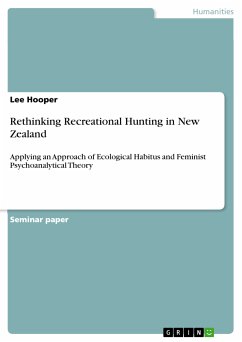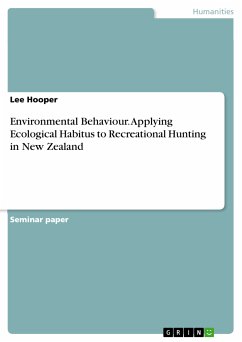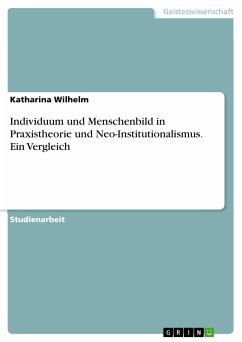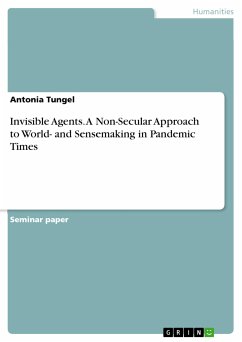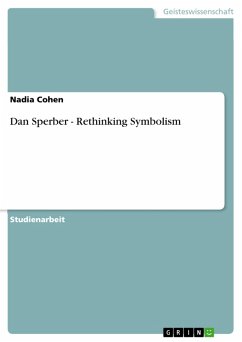Seminar paper from the year 2011 in the subject Ethnology / Cultural Anthropology, grade: 1, Massey University, New Zealand, language: English, abstract: The argument of whether recreational hunting is justified in the modern era is a controversial issue, with pros and cons being espoused by both sides of the argument. Through applying a sociological theory that looks to analyse the interaction and relationship between the environment and the people who inhabit it, it will be argued that the position one takes on hunting is a reflection of their ecological habitus on the macro-level and the desire to satisfy emotional needs on the individual level. By first outlining the historical context of hunting within in New Zealand, as well as defining the basic concepts of ecological habitus, it will be demonstrated that hunting attitudes are influenced by identification with a national 'kiwi' identity, one's environmental location and type of capital possessed. Furthermore, it will be shown that those who choose to hunt can be categorised into three general groups, with all displaying similar underlying themes. In applying the theoretical ideas of ecological habitus and feminist psychoanalytical theory, a more complex understanding is gained on the various external and internal influences that direct people's behaviours and belief systems around hunting. Relational processes between people and their environments, alongside repressed emotional states, are also shown to play an integral part in the decision to hunt.
Dieser Download kann aus rechtlichen Gründen nur mit Rechnungsadresse in A, B, BG, CY, CZ, D, DK, EW, E, FIN, F, GR, HR, H, IRL, I, LT, L, LR, M, NL, PL, P, R, S, SLO, SK ausgeliefert werden.

